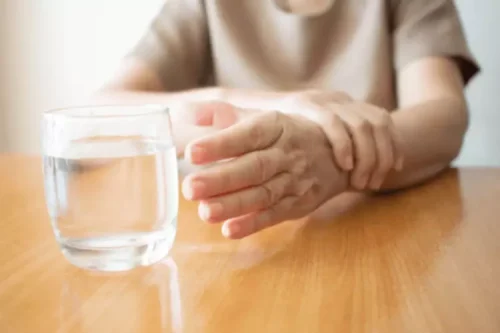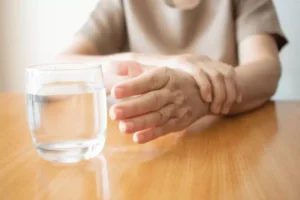
This class of drugs may be used to treat mild, moderate, or severe alcohol withdrawal. Benzodiazepines are a class of sedative medications that can treat anxiety and control seizures. This is typically the drug class of choice for alcohol withdrawal, as long-acting benzodiazepines may reduce the chance of recurrent withdrawal symptoms or seizures. Within six hours of your last drink, mild symptoms of alcohol withdrawal may begin to appear.
- Symptoms can become severe, and it can be difficult to predict whether individuals will develop life threatening symptoms.
- Severe AUD can lead to life-threatening complications and require immediate medical intervention.
- In reality, withdrawal is a physiological response to the brain’s adaptation to frequent alcohol use.
Medications
Avoid people who may encourage you to drink alcohol or may not support your decision to stop. It may be easier on your rehabilitation to skip visits with “drinking buddies” or avoid gatherings with a focus on drinking. There are many support options available that can help guide you through alcohol withdrawal, as well as abstaining from alcohol after withdrawal. People who drink daily or almost every day should not be left alone for the first few days after stopping alcohol. Withdrawal symptoms can quickly go from a bad hangover to a serious medical situation.
Alcohol Withdrawal Symptoms, Detox, Timeline, and Treatment
Identify a family member or friend who you can call on to provide emotional support. Cure for Alcohol Withdrawal Symptoms If you are thinking about quitting drinking, talk to your healthcare provider. Medical supervision, behavioral health treatment, and mutual-aid groups can help you through alcohol withdrawal and stay stopped.
When should I call my doctor?
- Thankfully, there is effective treatment available to help make your alcohol withdrawal process as pain-free as possible.
- People who are daily or heavy drinkers may need medical support to quit.
- While an unpleasant byproduct of stopping drinking, withdrawal symptoms are usually short-lived.
- It can help clear your mind and has many other great benefits beyond helping you deal with alcohol withdrawal.
- Benzodiazepines are first-line therapy for moderate to severe symptoms, with carbamazepine and gabapentin as potential adjunctive or alternative therapies.
Towarnicki and Nauts would like more primary care providers to manage withdrawal in outpatient settings. But they also endorse the importance of physical clinics or facilities where people can go to detox under supervision. More than once, Seefeldt said, outpatient providers have declined to prescribe her a few days’ worth of benzodiazepines, a critical medication for managing alcohol withdrawal. Because of their addictive quality and dangers when used with alcohol, Seefeldt said, she understands why some providers are hesitant to prescribe them. By now, Seefeldt knows which parts of the health care system might help her bridge the daunting initial gap between drinking and sobriety. But she has also continued drinking when the hurdles to detox and treatment have felt too high — especially the prospect of enduring hours and days of physical distress sparked by the absence of alcohol.

People at high risk of complications should enter a short-term in-patient detox program. You don't need to be diagnosed with alcohol use disorder in order to quit drinking. If alcohol is interfering with your health or your personal, financial, or professional life, consider quitting. If you drink only once in a while, it's unlikely that you'll have withdrawal symptoms when you stop.

Outlook for alcohol withdrawal syndrome
- Alcohol treatment programs are important because they improve your chances of successfully staying off of alcohol.
- The symptoms may worsen over 2 to 3 days, and some milder symptoms may persist for weeks in some people.
- Alcohol withdrawal symptoms can be incredibly painful and even deadly.
- When someone drinks alcohol for a prolonged period of time and then stops, the body reacts to its absence.
- Those protocols are meant to prevent relapses after patients leave the hospital, a high-risk time for fatal overdoses.
Approximately one-half of patients with alcohol use disorder who abruptly stop or reduce their alcohol use will develop signs or symptoms of alcohol withdrawal syndrome. The syndrome is due to overactivity of the central and autonomic nervous systems, https://ecosoberhouse.com/ leading to tremors, insomnia, nausea and vomiting, hallucinations, anxiety, and agitation. If untreated or inadequately treated, withdrawal can progress to generalized tonic-clonic seizures, delirium tremens, and death. The three-question Alcohol Use Disorders Identification Test–Consumption and the Single Alcohol Screening Question instrument have the best accuracy for assessing unhealthy alcohol use in adults 18 years and older.
After this first week is over, you may experience some residual withdrawal symptoms, specifically those affecting mood, for up to a few weeks. A person with delirium tremens needs to be hospitalized until the symptoms can be controlled. These symptoms generally appear 12 to 24 hours after your last drink. While these symptoms are more severe than Stage 1, they are not life-threatening. Addiction is a complex disease of the brain and body that involves compulsive use of one or more substances despite serious health and social consequences.

Severe Symptoms

After a relapse in 2024, Seefeldt described Mentel’s response as supportive and pragmatic. He prescribed her small doses of lorazepam, a benzodiazepine, to last her a day or two and scheduled regular check-ins. In some ways, lessons learned from past experiences make the decisions easier to navigate, Seefeldt said. But she is also wary of retreading dead-end routes, including frustrating encounters with medical providers. Drinking even small amounts of alcohol can have a temporary diuretic effect. "Alcohol causes antidiuretic hormone (ADH) levels to Halfway house drop, and as a result, the kidneys produce more urine and retain less water," Sal Raichbach, Psy.D., LCSW, chief of clinical compliance at Ambrosia Treatment Center, said.
دانلود فیلم از سایت سی مووی
لینک های Alcohol withdrawal syndrome: Symptoms, treatment, and detox time با افزوده شد.
دیدگاه خود را بنویسید